How to Get It Right
by Jess Erdman, Content Marketing LeadJune 2022

A Day in the Life of a Frustrated Shopper:
5:00 PM: Log off from Slack and start opening dozens of tabs to find a dress for a day in the office… And maybe something flattering to the body, but hides the arms?
I know it when I’ll see it.
6:00 PM: Begin to question why she has 20 tabs open. Closes a few and goes to her favorite fashion eCommerce store.
6:15 PM: Finds the search bar in the upper right corner, and navigates to “occasion–work” But the search results include dresses that are not office-related, including ruffled mini dresses. Why are these dresses under the “work” occasion filter?
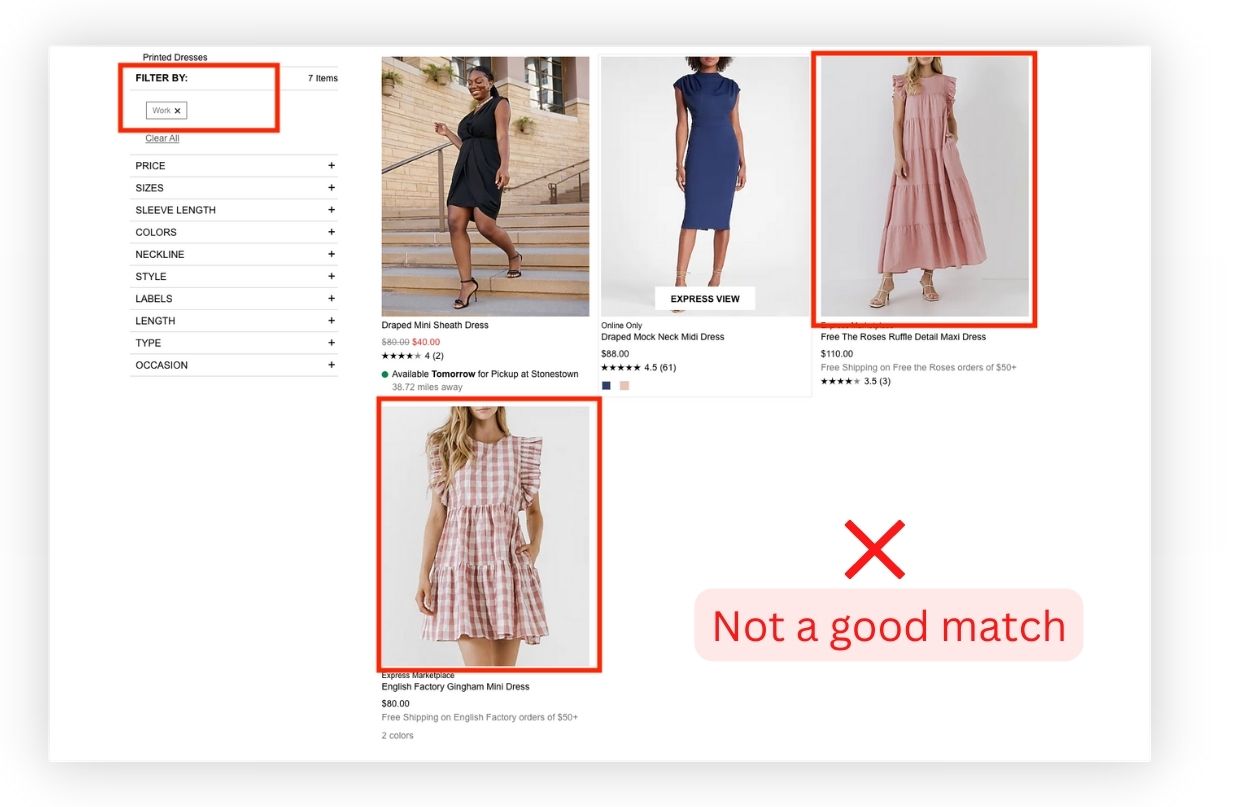
The shopper gives up and closes the tabs.
The retailer seemed to have it all: a robust product catalog, fashion tagging, and occasion filters–so what went wrong?
In this article, we’ll take a closer look at fashion tagging for occasion–and how to get it right. Specifically, we’ll cover:
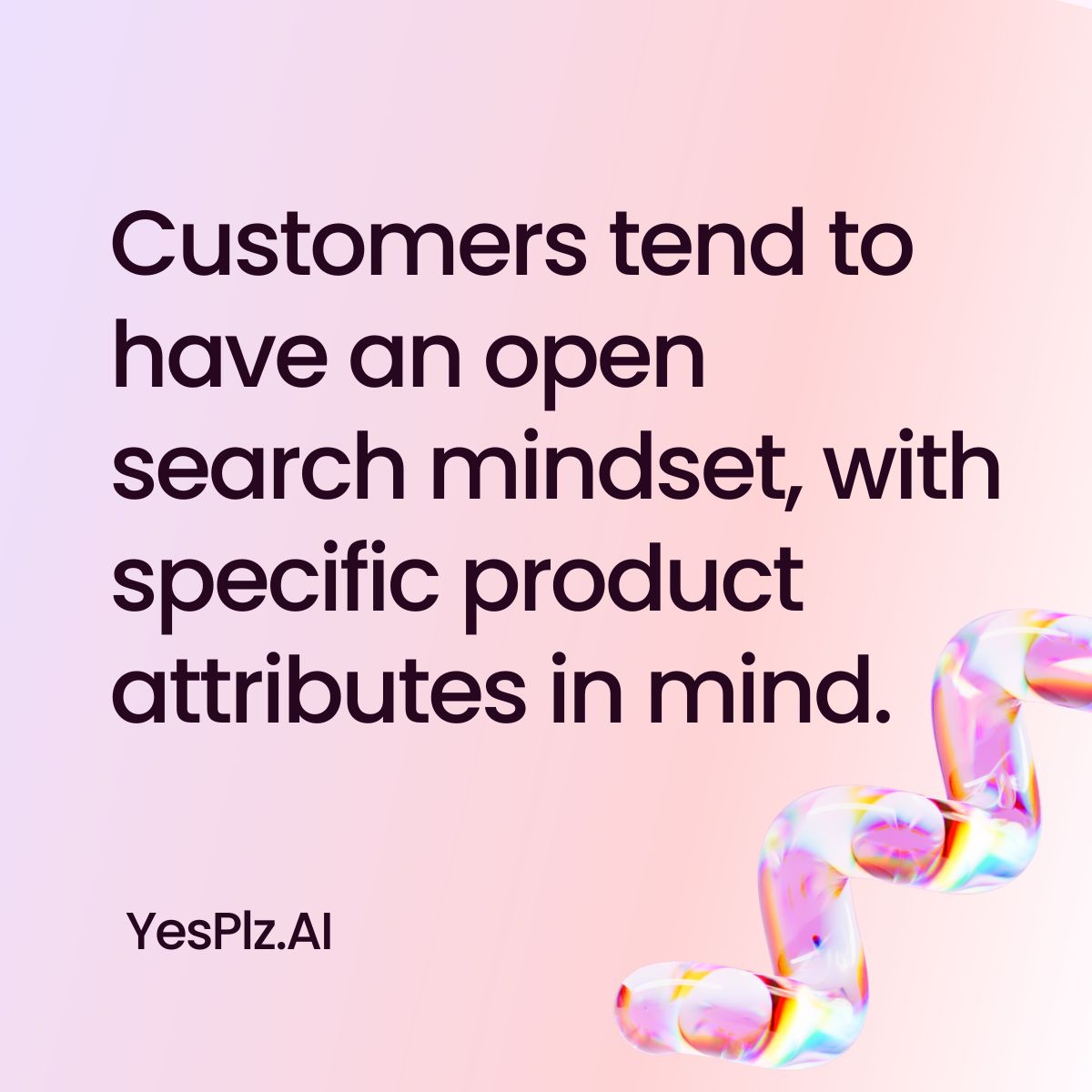
Current product and search filters are disappointing to customers.
Our research shows that customers tend to have an open search mindset, with specific product attributes in mind. For example, “I’m open to a work-appropriate dress, as long as I can hide my arms and the silhouette is flattering.”
But, let’s take a step and look at the current reality of search. A customer searching for a work-appropriate dress will either need to find the right set of keywords (“work dress long sleeve”; “office outfit flattering”; “work dress fitted”) or need to read through long lists of text filter options and individually select the set of product attributes she wants. Both options are frustrating, and require the customer to re-load, re-select, and re-read product lists.
As customer expectations and digital sophistication increase, customers expect to be able to search within their chosen parameters, while being inspired to discover.
Fashion tagging for occasion emerged as a way to allow customers to search within a theme (“workwear”) and explore the full range of retailers’ catalogs.
Occasion filters offer an alternative to the tedious keyword-driven search process.
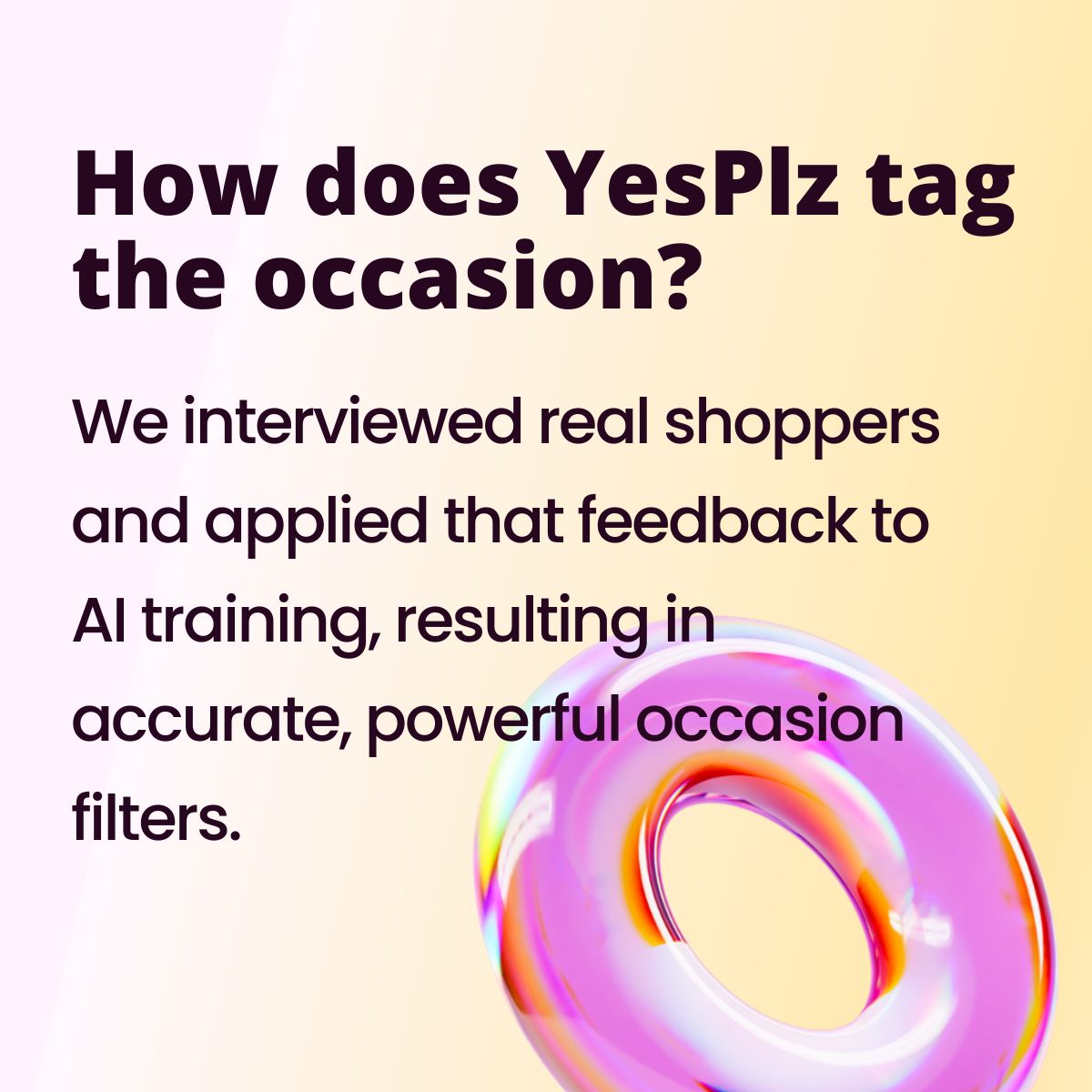
Interested in learning more about occasion filters for your fashion eCommerce?
Schedule a free 20-minute consultation
[ Interested in learning more about overall fashion tagging essential? how it works and what product infos are tagged? Check out our Fashion Tagging Essential Guide. ]
Implementing occasion or “thematic” filters is a best practice in fashion eCommerce, but difficult to get right. Shoppers have expressed the need to filter by occasion or theme, such as “vacation” or “work”--and retailers can provide filters by grouping products under these filters. And, occasion/thematic filters are consistently listed as a best practice for eCommerce filters.
If there’s a clear benefit–and shoppers want them–why aren’t there more offered?
The short answer: creating occasion filters is more complicated than simply selecting products and adding them to a theme. With complex, deep product catalogs, retailers are looking at spending hundreds of hours trying to manually tag product attributes.
And, if retailers are using automated fashion tagging, there’s still another, more abstract question that algorithms need to answer: what constitutes a “vacation” dress? Is it a specific pattern, fabric, or cut? The subjectivity involved holds back many retailers from implementing them, despite shopper preferences.
Fortunately, more advanced algorithms, like YesPlz’s fashion-trained AI, can identify not only individual product attributes, but put those attributes together to create criteria to determine which products are vacation clothes, for example. We interviewed real shoppers to refine the occasion filter search results, and apply that feedback to AI training, resulting in accurate, powerful occasion filters.
Occasion filters are no longer a “nice-to-have”--they’ve become integrated into the shopping journey. Shoppers want to see integrated experiences where they can filter for themes, events, occasions, and mood/vibe.
We identified 3 common customer painpoints:
Problem 1: Limited and confusing filter categories
Depending on the retailers, the product filter categories can be too limited. Users want to see more than 3 very basic categories. For example, instead of “casual,” users might want to see “workleisure” or “vacation.” Based on our research, users often start the search process by occasion (“a dress for my sister’s graduation”), but current product filter and search options aren’t meeting their needs.
In addition, the problem with the language of fashion search also exists. Shoppers are asked to interpret retailers’ language, which leads to frustration.
Problem 2: Inaccurate search results
Search results are the core of the search and discovery experience––no matter how enjoyable the search tools/processes are, users still expect to see accurate search results. Inaccurate search results will have a negative effect on a fashion eCommerce’s brand perception–and cause users to immediately bounce.
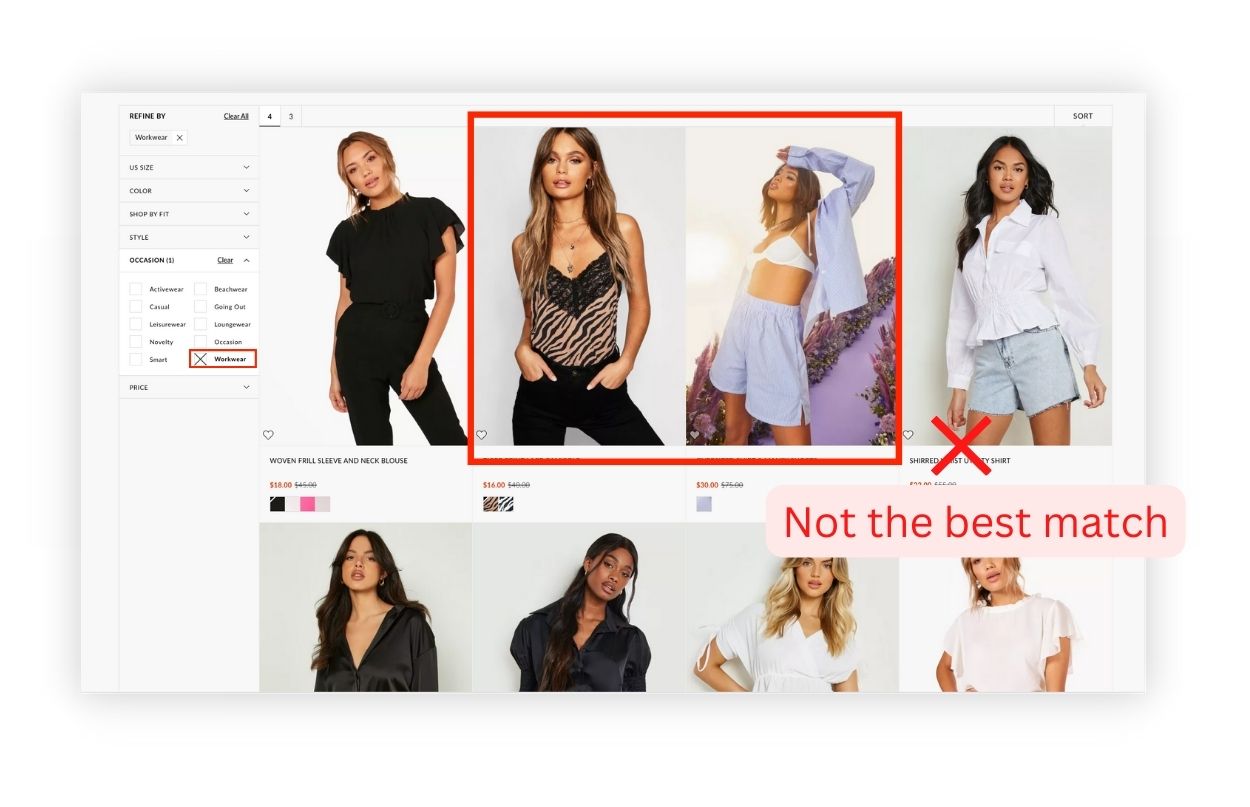
Problem 3: Lack of vibe and mood filters
User interviews show that current occasion categories are still too limiting–and ideally, users would like to filter based on vibe and mood. For example, users want to see minimal workwear, vacation-chic 2-piece outfits, or statement blouses–not only “casual” or “wear-to-work” categories.
Keep up-to-date on the latest fashion and retail tech news.
Follow YesPlz AI on LinkedIn
Thematic and occasion filters are subjective. One shopper’s definition of “romantic” blouses can differ from another–making the question of fashion tagging tricky. “Vintage” clothing can be defined as everlasting styles that don’t change–or worn out, second-hand clothing, depending on who you ask.
Many retailers are still manually tagging product information for occasion filters, mapping the occasion to a brand style. The outcome? Inaccurate search results.
We do thematic filtering differently.
Here’s how YesPlz solves the common painpoints for customers:
Step 1: YesPlz crowdsources the definitions for occasions to create accurate filters
One of the biggest problems is the subjectivity in defining occasions and themes. When retailers only use individual definitions from 1 or 2 merchandisers, we see inaccurate search results.
YesPlz solved the problem of subjectivity by using crowd training and user interviews to validate the occasion and theme filters–meaning, no more subjectivity. The definitions are based on a large enough group of interviewees that we can determine common language.
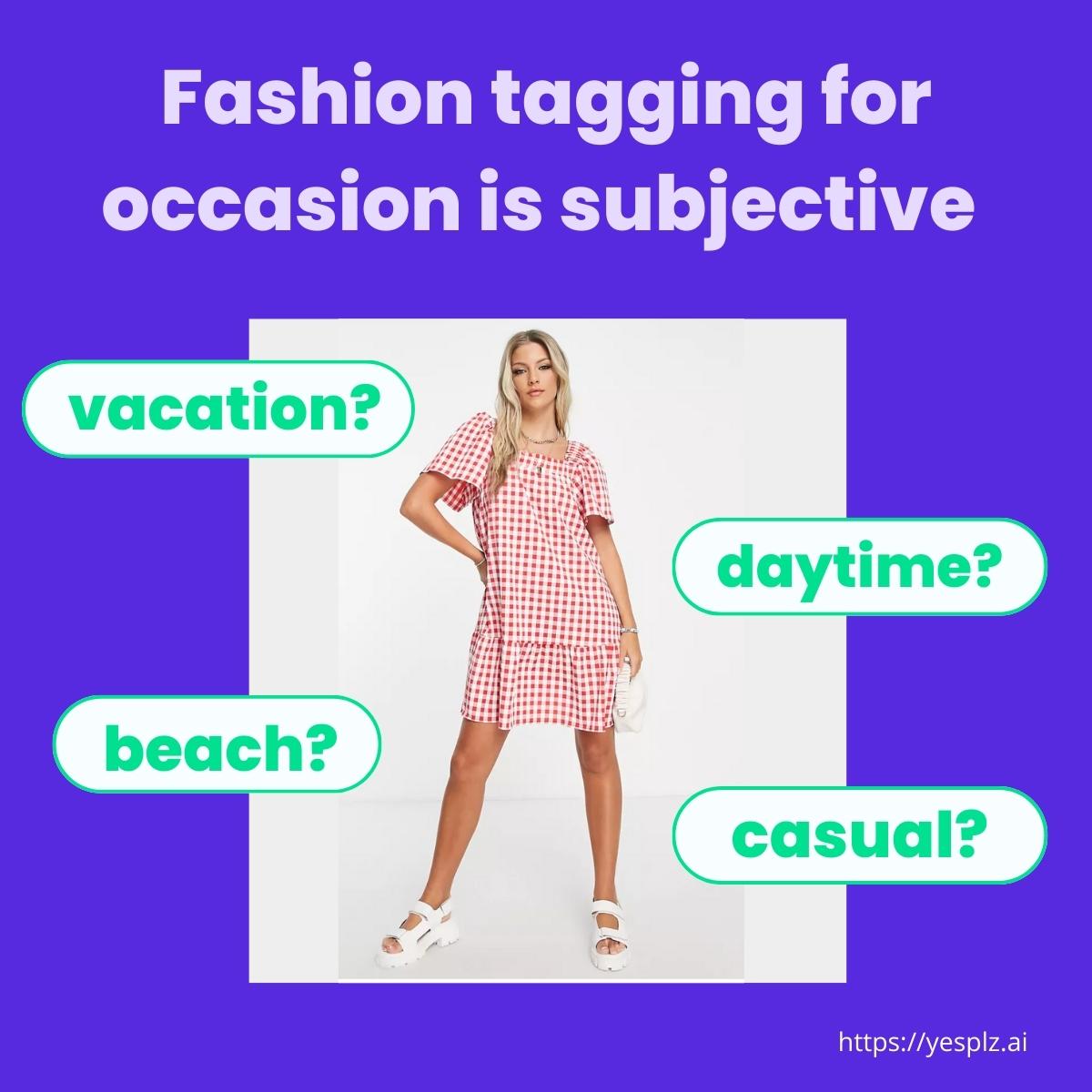
Step 2: Rigorous fashion AI training to understand the mood and vibe
We train our fashion AI and reiterate until the AI can understand the vibe from product images and information. By automating the process (combined with information from users), we can provide accurate search results that fit the mood/vibe.
Step 3: Accurate filters that delight customers
Our hybrid approach, that combines crowd training and fashion AI, is YesPlz’s secret recipe to successful occasion, theme, mood, and vibe filters.
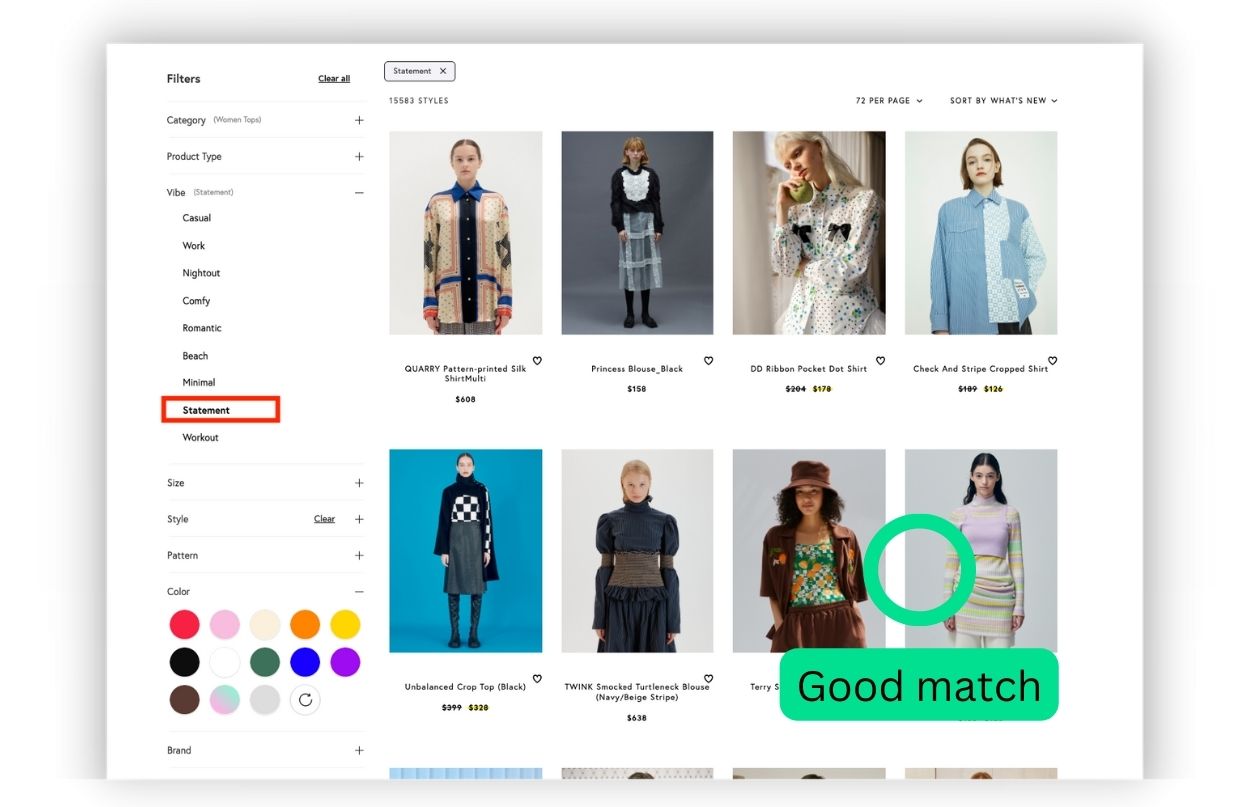
By combining crowd training and fashion AI, we provide accurate, automated thematic filters that are fashion-forward and relevant to shopper preferences, at lightning speed.
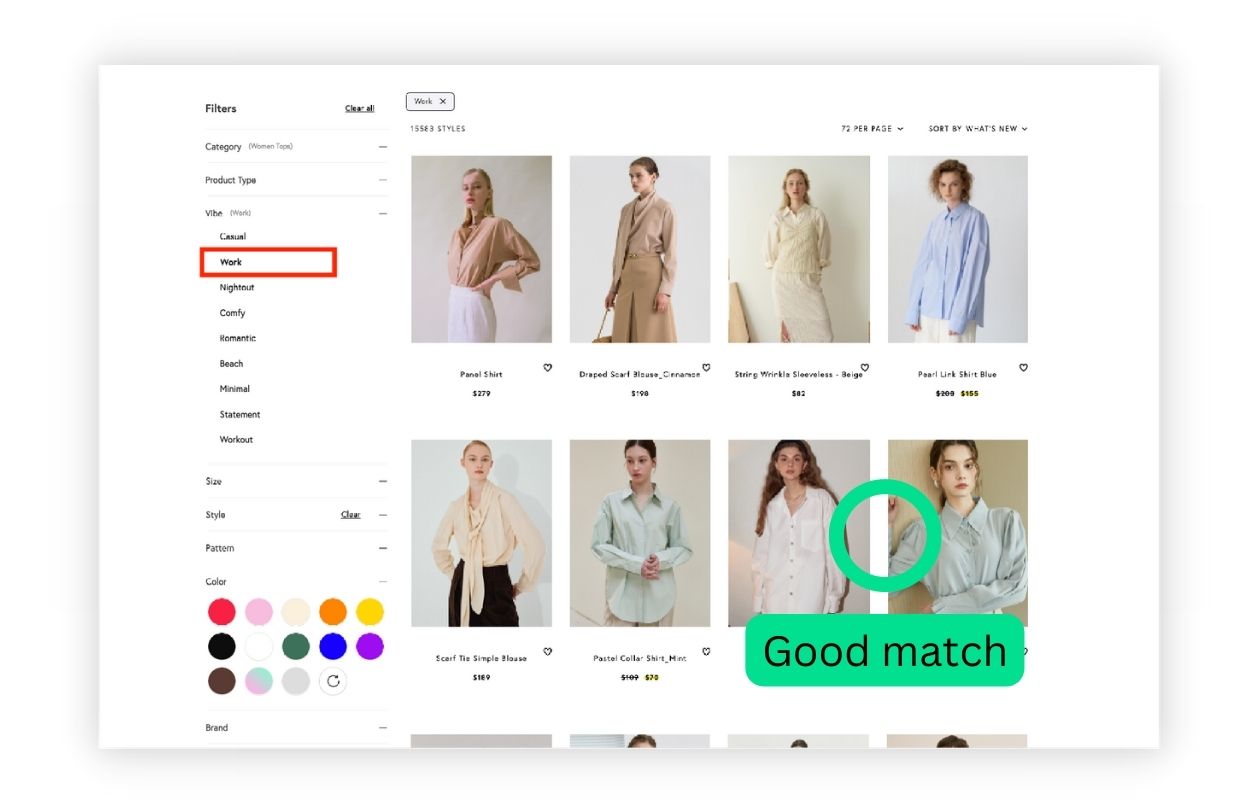
With the current state of product filter and search ending in disappointment for customers, retailers need to find a way to appeal to frustrated shoppers. Occasion filters mirror the way that customers naturally search for products, resulting in happier, satisfied customers.
Specifically, occasion filters improve the customer search experience by:
1- offering more personalization, a must-have for customers in 2022
2- allowing customers to explore products, resulting in more time spent on page and looking at products
3- providing a path for customers to find the products they want, quickly and easily.
Fashion tagging for occasion doesn't need to be difficult to implement. By using an AI-powered solution like YesPlz AI, both shoppers and retailers can enjoy the benefits of occasion filters.
Written by Jess Erdman
Content Marketing Lead
I'm passionate about creating cool content. The best part? I get to learn new things about fashion tech and ecommerce everyday. Have an idea or opinion about this article? Reach out at jess@yesplz.ai
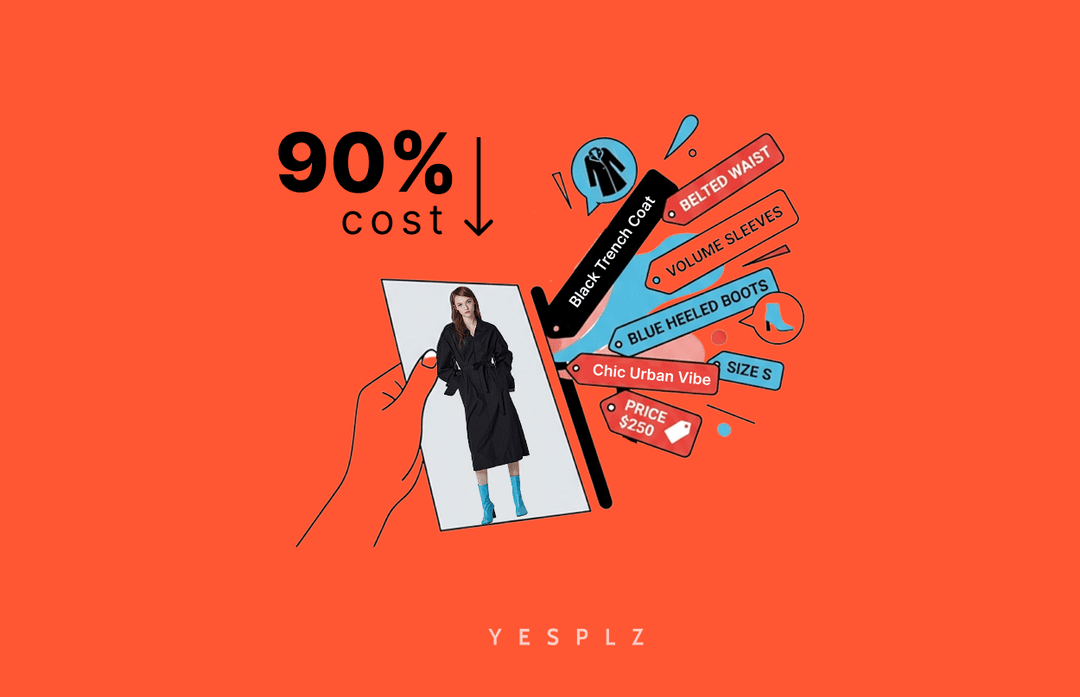
Inconsistent tags hurting sales? Self-service product tagging delivers accuracy and speed without enterprise prices. Tag products 10x faster at 90% lower cost.
by YesPlz.AI
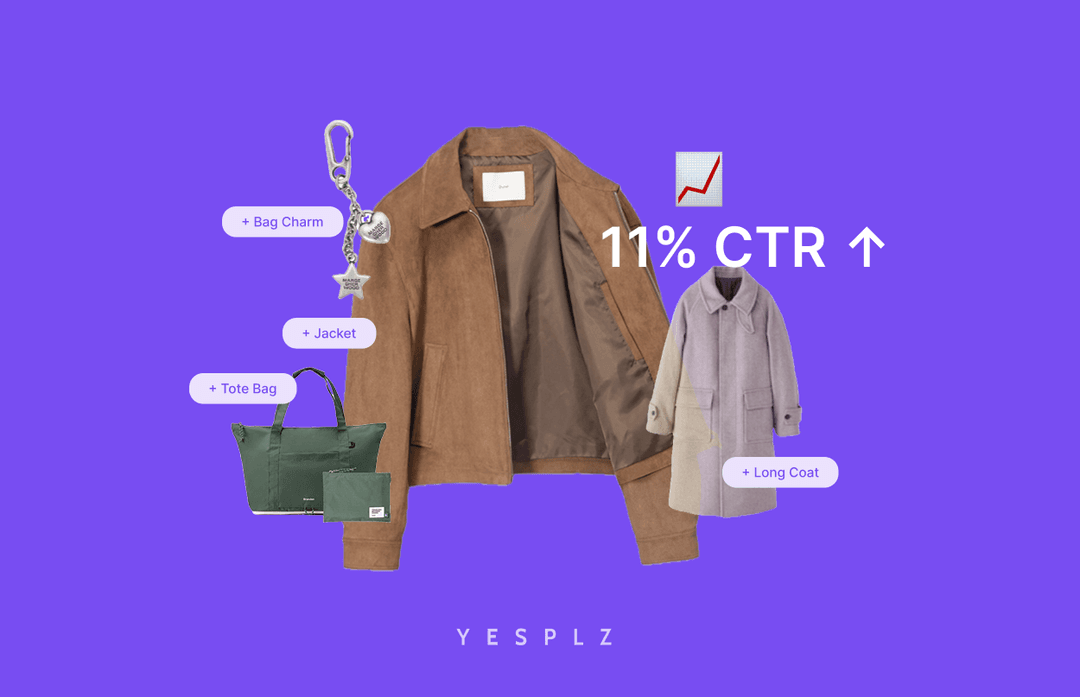
We analyzed 13,374 fashion searches. AI tagging increased product discovery by 22% and boosted clicks by 11%. Here’s what the data revealed.
by YesPlz.AI